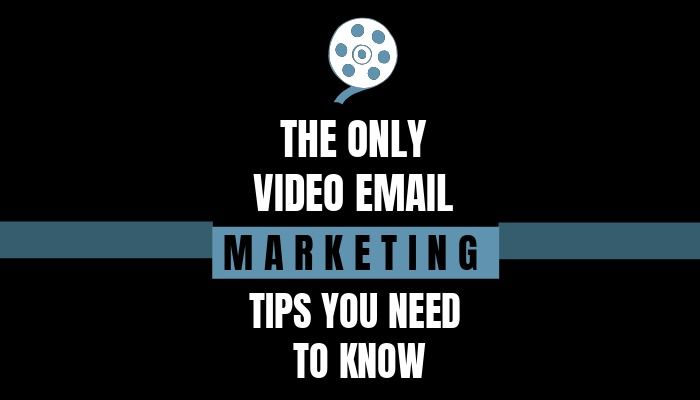What is Content Marketing?
If you’re a business owner you’ve probably heard people throwing around the term ‘Content Marketing’, but what exactly does it mean?
Content Marketing is a form of marketing that is educational rather than promotional. You offer such great information, which brings value to your audience so that they become loyal to your brand and convert into customers.

But unlike other marketing efforts it can be difficult to measure your ROI for content, in fact, 39% of marketers say proving the ROI of their marketing activities is their top marketing challenge. So, how can you tell if a blog post leads to a sale? There is no simple measurement for working out ROI, but there are some key content marketing metrics you should keep an eye on so that you can determine how well your content is performing.
The Metrics That Matter
Not all metrics were created equal and knowing which ones to keep track of and which are less important can make the difference between a successful content marketing strategy and a failed content marketing strategy.
Traffic
A key content marketing metric to track is your website traffic. The traffic to your site covers a number of things, from the number of users to the number of page views a certain page has. Keeping track of traffic can give you an overview of whether your site is performing well and if its performance is improving over time or not.

When looking at your traffic you should not only be thinking about the number of visitors but where they are coming from. This could be organic traffic from search engines or it might be referrals from another site or social media; understanding this information can help you ascertain where your audience gathers online. Once you know where your audience is, you can place your content on that platform so it is easier for them to find and then you should start to see an uptick in your website traffic.
Lead Quality
Lead Generation is the primary goal of any content marketing strategy. Therefore, your high-quality content should be aimed at attracting highly qualified leads within your audience.
Many marketers place an emphasis on lead quantity rather than lead quality. But with the rising popularity of bots and leads that won’t always convert into customers, quantity is not always an accurate measure of content success.

Not all leads are equal, but measuring the quality of leads is a difficult problem many marketers face. That being said, how can you tell which pieces of content are generating the highest quality leads and which are generating low-quality leads?
Trackable behaviour metrics can help you figure out the quality of the leads you are generating. By recording, tracking, and analyzing every action that your lead takes, you can establish the patterns of lead behaviour that come from high-quality leads and use these patterns to determine a lead’s quality.
Conversion Rate
This is another content marketing metric that can help you establish lead quality. Your conversion rate assesses how many visitors on your piece of content have reached your goal. This goal can be anything from an email sign up to downloading an ebook to purchasing a product.
Conversions should be one of your business’s main content marketing goals, as theoretically, the more visitors that convert, the more successful your business will be.

Social Shares
Social Media is an essential method for content distribution. The more shares your piece of content gets on social media the more visibility it will have. This means you can get in front of new audiences and also build your social proof.
_1650619636975_resize.jpg)
Not all content performs well on every social platform, so be certain to differentiate the types of content you create to ensure that it can be distributed to different audiences on social media.
For example, text-based posts or links to blogs might not perform well as social media is dominated by visual content. As stated, infographics are liked and shared on social media 3x more than other any other type of content.
Time Spent on Page
Knowing how long a visitor has spent on a page can influence your content marketing strategy.
For example, if you create a piece of content but visitors are not spending much time engaging with it, you may want to optimize your content to increase the time spent on the page. If it is a written piece you can look at things like the structure of the content, readability and adding visuals to make it more engaging.
_1650619706906_resize.jpg)
If you have a page that visitors are spending a particularly long time on then you know you have a great piece of content and you can do further promotion of it, and even update it over time to expand its lifespan.
Bounce Rate
Bounce Rate is a user engagement metric that tells you the number of visitors to a particular page of your website who click back from the site after only viewing one page.
Having a high bounce rate tells you that your content or site is not sticky and that you are not able to retain visitors, and therefore are missing out on potential conversions.
_1650619758545_resize.jpg)
You should analyze bounce rates across individual pieces of content and compare what is performing well and what is not. This can help you find flaws in your content marketing strategy and help you improve engagement on these pieces of content.
Is Content an Effective Marketing method for your business?
If you’re just entering the digital marketing space you’ve probably heard a few times that ‘Content is King’. That being said, only content that is created through an effective content marketing strategy can be tremendous at helping a business grow.
Don’t believe us? Well, check out these stats:
- Content marketing costs 62% less than outbound marketing and generates three times as many leads (Demand Metric)
- Content marketing leaders experience 7.8 times more site traffic than non-leaders (Neil Patel)
- 88% of B2B marketers use content marketing in their marketing strategies (Content Marketing Institute)
- When content marketing adopters and non-adopters are compared, the adopters have conversion rates that are nearly six times higher than their competitors (Content Marketing Institute)
- Having in-depth content converts more leads – on average, long-form blog posts generate nine times more leads than short-form posts. (Curata)
- With the lack of faith most customers have in brands, content can help you build relationships again, with 95% of B2B product or service buyers considering content as a trusted source when evaluating a company and its offerings. (DemandGen)
- Approximately 78% of buyers relied on white papers to make a purchasing decision within the past year. (Curata)
If you’re not invested in content marketing just yet, it’s not too late. Get started by learning how to start a blog as soon as possible and start growing your business.

Michael
Michael is a professional Content Strategist. He sees his mission in empowering marketers with actionable data so they can make more informed decisions about their content strategy. Michael adores the Animated Text Generator tool.


